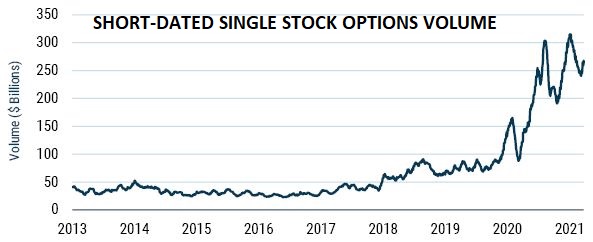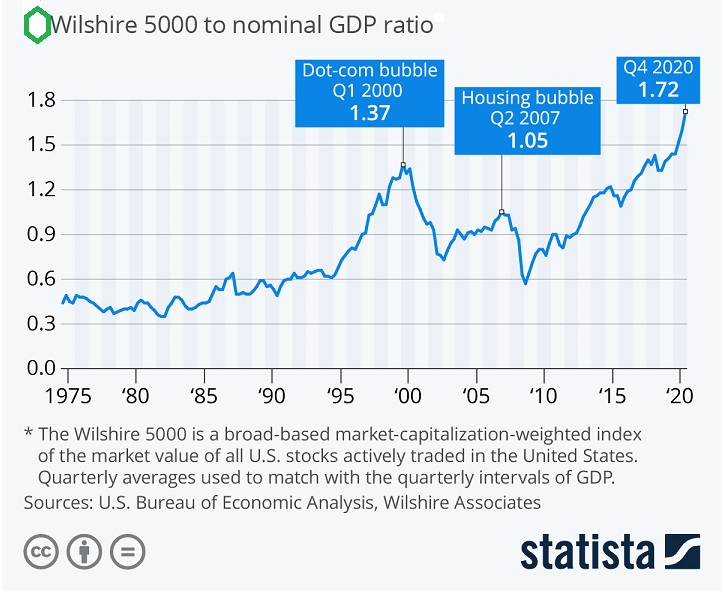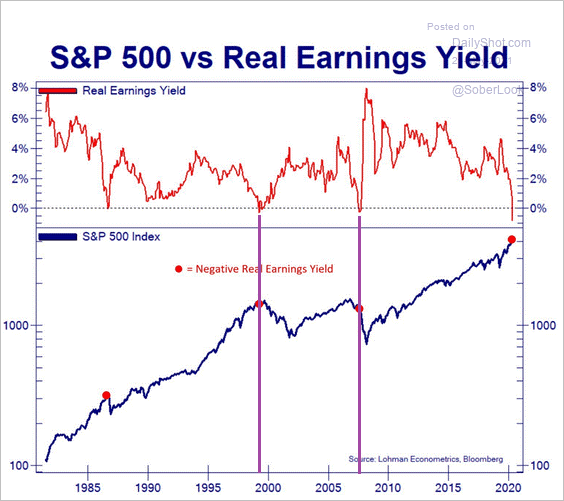Speculation drives market activity more today than it did at any previous moment in history. To wit, short-dated single stock option volume is now 5x greater than it used to be.

Think about this for a moment. Rather than invest for a long-term stream of cash flows, scores of market participants now attempt to predict positive price direction for individual stocks across a handful of trading sessions.
This might not be so bad were it not for the fact that the stock market is more overvalued than it was in 1929, 2000, or 2007. As tempting as it is to dismiss the reality, whether by pointing to exceptionally easy financial conditions, economic growth prospects, and/or stock share scarcity, irrational exuberance is still irrational.

Market-cap-to-GDP (a.k.a. “Warren Buffett Indicator”) is one of many measures that boasts a remarkably high correlation with subsequent forward returns. And yet, far too many folks dismiss its hyper-valuation implications.
Perhaps an examination of inflation-adjusted earnings yield (E/P) can provide additional perspective. The last two times that the inflation-adjusted earnings yield (E/P) turned negative occurred shortly before the 2000 tech stock wreck and the 2008 financial crisis. In both instances, the S&P 500 lost more than 50%.

That’s right. Stocks slashed in half!
And the time required to recover an inflation-adjusted “breakeven point?” 5-7 years.
Will stocks fall 50% once again? With inflation-adjusted earnings yields turning negative? Possibly.
One thing is for certain. The Federal Reserve will have a difficult time maintaining its credibility. Protecting the nominal value of assets, and a perceived wealth effect, risks letting inflation destroy the dollar’s purchasing power. And yet, a decision to fight inflation with tighter financial conditions would bury the hyper-valued stock market in a hole of wet concrete.
Would you like to receive our weekly newsletter on the stock bubble? Click here.
